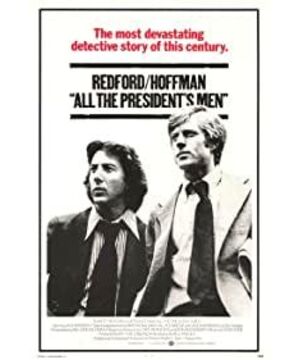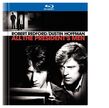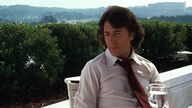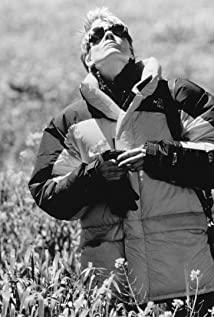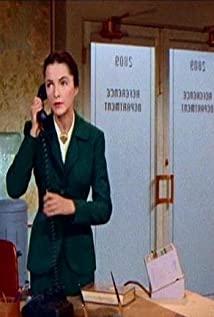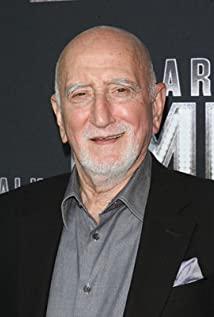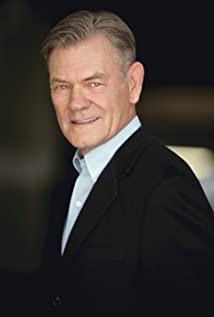First of all, this is a movie about the truth. On June 17, 1972, five people, headed by James McCord, the chief security adviser of the U.S. Republican Party’s "Presidential Reelection Committee", broke into the Democratic National Committee office in Watergate Building in Washington at night, installed bugs and He was arrested while taking pictures of relevant documents, and the "Watergate Incident" broke out. After the incident, two reporters from the Washington Post, Bob Woodward and Carl Bernstein, conducted a series of follow-up reports on the entire incident. It was the inside information they reported that revealed the relationship between the White House and the incident. The connection between them eventually prompted Nixon’s resignation. Another Chinese translation of the film, "The Great Conspiracy" is more cliche and easy to understand, but the "presidential team" refers to the presidential staff who participated in the matter at that time, and is relatively more relevant.
"Presidential Team" is based on the novel written by the two reporters mentioned above. Robert Redford, a veteran movie star who played Woodward, one of the reporters in the film, bought the film adaptation rights to the novel for $450,000 in 1974. It should be said that Radford's keen sense of smell allowed him to make a good deal of fame and fortune. The film budget is only 1.5 million US dollars, but it has received 70.6 million US dollars in the box office and numerous awards and nominations. The most worth mentioning is that the film was included in the "National Film Catalog" in 2010. This is a collection of the best films ever made in the United States. Only films with "cultural, historical or aesthetic significance" are eligible to be selected. .
The same excellent "smell" can also be used on Woodward and Bernstein back then, so this is also a movie about how to get the truth. In fact, there is still a certain difference in style between the novel and the adapted film. The original book is more biased towards crime detection or political detection works, with many suspense and horror elements. But the movie is different. It only covers the first seven months of the entire incident, while focusing on the process of how the two journalists used perseverance and courage to uncover the truth step by step. It can be said that it is more like a documentary or biopic.
Two ordinary reporters wanting to uncover the ulterior secrets of the White House and confront the most powerful man in the United States is almost equivalent to "David challenging Goliath." Regarding their success, from the point of view of the plot of the film, it is first of all due to the perseverance of the news reporting spirit of the two. It is said that they had to work twelve to eighteen hours a day when conducting investigations, interviewing for 40 days, and interviewing more than 1,000 people. Reflected in the film, they did encounter various difficulties, such as internal obstacles in the newspaper, non-cooperation of interviewees, confusion and complexity of incident clues, and so on. There are two similar shots in the film that are extremely impressive. One is the day when Nixon won the election in the middle of the film, and the other is Nixon's swearing-in at the end of the film. Fighting journalist. The happy crowd and the complacent president seemed to be laughing at these two overpowering ants.
Of course, the truth about the "Watergate Incident" was not entirely dependent on the efforts of the two reporters. Among them, the freedom of the press of the American media is a prerequisite. It can be seen from the film that although various factors such as politics and business restrict reporters' access to materials and reports, they are unimpeded at the legal level, even if the interviewee conceals or tampered with the truth of the matter for various reasons , But most people are still willing to accept the interview. The reason is that the freedom of the press is protected by law.
On the other hand, the bipartisan struggle in American politics and the mistakes Nixon made in handling this incident also played a decisive role. What follows may be a few off-topics that have nothing to do with the movie itself, and those who are interested can continue to watch it. There were two mysteries in the "Watergate Incident" that year. One was who gave the order to break into the Watergate Tower, and the other was why a trivial third-rate theft case would eventually escalate into an unprecedented constitutional crisis in American history and lead to Nixon's resignation. Woolen cloth?
With the declassification of the relevant archives, the answer to the first mystery is obvious: Nixon himself did not directly order or plan the matter. The second mystery involves Nixon's personal interests and ambitions. As we all know, the U.S. political system is the separation of three powers, but these three powers have always been in a cyclical dynamic change of alternating dominance in the history of the United States. In some stages, Congress dominates, and in some stages, the president becomes power. At the center, even an arbitrary imperial president appeared in the diplomatic and military fields, threatening the three powers of the United States. The Nixon administration is a typical example. Unlike other corrupt or negligent presidents in American history, no administration has threatened the Constitution or even destroyed democracy itself as Nixon and his supporters did.
And this is inseparable from Nixon's personal characteristics. Nixon was born in a humble background, and his two brothers died early, which made him instinctively insecure. It also gave him a multi-character character that was compassionate, sentimental, magnanimous, scheming, cunning, irritable, and narrow-minded. Many of his early election failures have reinforced his bad side of his character, paranoid, unscrupulous, and inclined to regard political opponents as enemies of life and death, seeking political compensation for his emotional weakness. Therefore, although the "Watergate Incident" was not directly ordered by him, it was also triggered by his daring to despise the law and order a wide range of illegal political sabotage and intelligence gathering activities.
In fact, because there were neither casualties nor property losses in this case, as long as the guilty pleaded guilty and insisted that it had nothing to do with the White House, they would only receive fines and suspended sentences in accordance with the usual American trial. However, it is precisely because of Nixon’s inherent insecurity, scheming, and political manipulation that Nixon and his so-called "presidential team" quickly carried out activities to cover up the truth, repeatedly using their power to obstruct investigations, and repeatedly attack the United States. Citizens lied and made many erroneous mistakes that led to the final outcome. Just as Nixon said in his later years: "I regret too many things in the Watergate incident. The first is the way I dealt with this damn thing in the beginning. I have nothing to do with it and should not go into war. I should face the United States directly. People, tell them what happened and assure them that all the people involved will pay the price.”
Going back to the news reports of that year, the Washington Post won the Pulitzer Prize for exposing the "Watergate Incident," and established its position in the American press. Woodward and Bernstein also became famous in the first battle. Many factors contributed to this incident, which is one of the "ten media myths rendered by the American press." Infected by the pursuit of justice and truth by two journalists, the number of students majoring in journalism and communication in the United States increased significantly, and news media professionals defended justice. , The power to dig out facts has been further improved. Perhaps the original intention of reporters and newspapers may be to become famous and attract attention, but the greatness of this report itself is beyond doubt.
♑
View more about All the President's Men reviews


